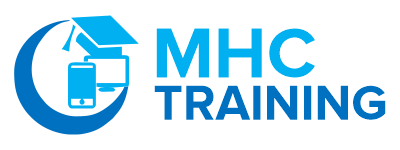This training from MHC-TRAINING is for all staff in Health & Social Care. It follows CSTF standards and incorporates standards guided by BILD/RRN & The GSA.
Our Services
3 Days PMVA Training
Prevention and Management of Violence and Aggression (PMVA) Training specialist
3 Days PMVA Training

We provide full 3 days of PMVA training for staff working in a challenging environment where physical intervention is required.
This training will help to reduce the risks of violence and aggression by developing staff knowledge, skills as well as approaches, including minimizing potential harmful injuries and how to effectively manage challenging presentations.
This course demonstrates techniques that will help you continue to defuse and manage potential conflict, safely, within a variety of settings.
The course content has been developed in line with the GSA (General Services Association).
The 3-4 DAY PMVA Course is for those candidates that have not yet undertaken any PMVA Training. It is also for those candidates that have had their Refresher lapse, ie, gone over 12 months from the Initial 3-4 Day PMVA Training. Health questionnaires are to be completed. Pregnant candidates are not advised to attend due to the physical nature of the course.
Candidates should wear suitable clothing, trainers, tracksuit bottoms and loose tops are preferable. No hard-soled shoes as this will damage the training mats. Knee pads are available to those who may require them.
By the end of the course, delegates will be able to:
Select + utilise appropriate physical + nonphysical strategies to manage aggressive individuals, Understand their Legal Responsibilities, Know the stages of the assault cycle + what each stage means, Understand Reasonable Force, Recognise the importance of early intervention, Understand ethical considerations of physical intervention, Identify possible causes of violence + aggression, Be able to identify signs of escalation + aggression, Understand the different types of de-escalation strategies, Understand the importance of continually assessing + evaluation the levels of risk posed by difficult/challenging people.
Day 1
knowledge of Positive Behaviour Support (PBS), knowledge of Safewards Model, Presentation on Use of Force/ Mental Capacity Act/ Mental Health Act, Role + Responsibilities of Head Person, 3 C’s, presenting + securing head, Instruction + practice of; Friendly come along (including Non-Contact, stage one, two + figure of four), Seated De-escalation to include Trouble Drills, Upper Arm Wrap, Team Formulation & Approach, Standing holds to include (Escape and Rescue), Upper Arm Wrap to a secure hold.
Day 2/3
Presentation of de-escalation techniques, the assault cycle and early warning signs, Instruction + practice of; Upper Arm Wrap to Supine, Turning from relocation holds to wrap and vice versa, supine I.M, Standing from floor to Supine, Supine Descent to floor to elevated rest position, De-escalation in Supine, Supine trouble drill sniper, Securing legs in Supine.
Day 3
Presentation on Risks associated with Restraint, Instruction + practice of; Turning Prone to Supine and Supine to Prone, Prone descent to the floor, Prone upper rest to lower and vice versa, Door work, reliefs in standing, supine or prone, De-escalation on the floor, Securing Legs in Prone.
What Our Users Say About Us

Health & Safety Requirements
Completion of Fitness Questionnaire. This will aid the tutor to identify and possibly rectify the teaching process for each individual candidate. It is advisable to be honest about any conditions as MHC-TRAINING will not be liable for any issues that the tutors are unaware of. Wear suitable clothing, preferably tracksuit bottoms and a loose top. Trainers are to be worn and no hard-soled shoes as mats will be used. Knee pads are available for candidates that require them. Excessive jewellery is to be avoided for your and others’ safety. Hair must be tied back and nails cut short.

